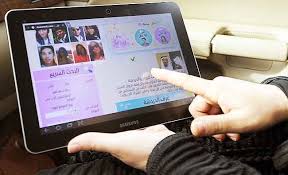May 18: As the UAE authorities have asked all residents to avoid gatherings, it is clear that - for the first time - it's going to be a #StayHome Eid. But experts say that although it will be different, the celebration will be just as meaningful.
It is important to remember that the Eid prayer can be performed at home either individually or with family members under the sane roof, said Dr Mohammed Eyada Ayoub Alkobaisi, a Grand Mufti with the Islamic Affairs and Charitable Activities Department in Dubai.
Dr Alkobaisi said this prayer is a highly recommended Sunnah or practice urged by the Prophet Muhammad (Peace be upon him).
"Eid Prayer must be performed openly, unless we are prevented for an acceptable reason, such as fear for self, wellbeing, property, etc." Under the current circumstances, prayers can be offered from home, he said.
But what the faithful will likely miss is listening to the khutbah or the sermon of Eid with a crowd. The sight of people pouring out into the streets and coming together for prayer and worship would not be unfolding this time.
Dr Sheikh Mohamed Ashmawy, an Islamic researcher, said that in this time of Covid, doing away with several Eid traditions would be necessary for everyone's safety.
"The ban is is line with the ongoing preventive measures to curb the spread of Covid-19," he said.
However, it doesn't mean people can't celebrate and exchange heartfelt greetings, he added.
"We can greet each other remotely on the phone or via social media networks."
Islamic researcher Sheikh Mohamed Wasfi said audio-visual smart apps have made communication much easier, even bringing people closer than before.
"Of course, families and friends wish to hug, shake hands and see each other personally, but this will be a big risk these days," he said.
Sheikh Asadullah Del Mohamed, an imam, reminded that banquets, parties and visits are discouraged to avoid crowds and gathering.
Recently, 30 people from two families tested positive for the virus after breaking social distancing rules and holding a gathering.
Faithful's sentiments
Ibrahim Abdelkader, an Egyptian auditor, said that while it would be sad to spend Eid Al Fitr at home, he understood that it is for everyone's safety.
"Better to stay home than be sorry," said Ahmad Jamil, a Syrian resident.
Rashid Saeed, an Emirati national, said people are advised to just check on each other by phone or video and voice call apps.
"While Eid prayers is banned in congregation, it's not acceptable at all for some people to carelessly gather and exchange visits," he said.
Abdullah Al Saleh, an Emirati national, said he and all his relatives used to gather for breakfast after the Eid prayer - but this time, they are ready to do it in their own homes.
Mohamed Ibrahim, another Emirati, said he would surely miss seeing his kids happily prancing around with their new clothes and enjoying the outdoors like every year.
"But, I agree as it is for their health, safety and wellbeing," he said.
THINGS TO REMEMBER IN CELEBRATING EID THIS YEAR
>Perform the Eid prayer at home, individually or with family members living with you
>Exchange greetings with loved ones and friends via phone calls or online
>No hugs
>No handshakes
>No gatherings
>No visits to other homes
 He told Okaz daily that the job is basically the documentation of marriage contracts, and “if the Ministry of Justice approves that, then there is no legal obstacle.”
He told Okaz daily that the job is basically the documentation of marriage contracts, and “if the Ministry of Justice approves that, then there is no legal obstacle.”




Comments
Add new comment